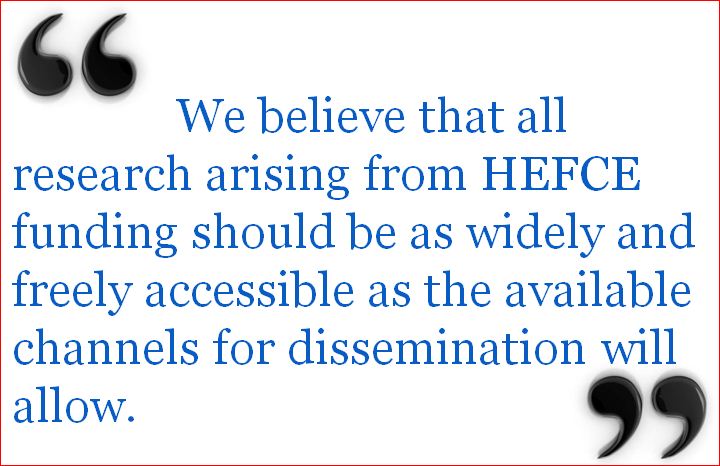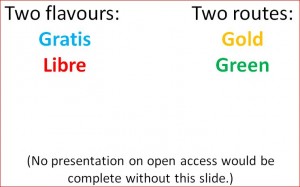A few weeks back we were privileged to welcome experts on the topic of Open Access to speak at BU in an event well attended by delegates from HEIs across England, Scotland and Wales. The event was enjoyed by all who attended and over a series of blog posts I hope to summarise some of the key points raised by each of the speakers. We also filmed the event so hope to be posting this soon for all to watch, enjoy and comment upon.
A few days a go, I summarised Alma Swans Introductory Address on ‘The benefits of Open Access’. Today, I look at Ben Johnson’s presentation ‘Open Access in a Post-2014 REF’.
 Ben Johnson is a policy adviser at the Higher Education Funding Council for England (HEFCE), where he has worked for the past five years. He has a first class honours degree in music from the University of Southampton, and ten years’ experience working in strategic planning, process improvement and risk management. Since joining HEFCE, Ben has focussed on developing the Council’s thinking in novel, emerging and cross-cutting policy areas. Recently, these have included examining how technological advancements can drive openness in education and research. In 2013, Ben joined the research policy team to lead HEFCE’s work on open access, research information and infrastructure.
Ben Johnson is a policy adviser at the Higher Education Funding Council for England (HEFCE), where he has worked for the past five years. He has a first class honours degree in music from the University of Southampton, and ten years’ experience working in strategic planning, process improvement and risk management. Since joining HEFCE, Ben has focussed on developing the Council’s thinking in novel, emerging and cross-cutting policy areas. Recently, these have included examining how technological advancements can drive openness in education and research. In 2013, Ben joined the research policy team to lead HEFCE’s work on open access, research information and infrastructure.
In April, HEFCE and the other three UK funding bodies published details of a new policy for open access relating to future research assessments after the current 2014 REF. To read this item in full visit: http://www.hefce.ac.uk/news/newsarchive/2014/news86805.html. In his presentation, Ben talked through this policy and answered questions from delegates throughout the day.
He opened his presentation by outlining Open Access its flavours and routes. GOLD being the journal making the work immediately and freely accessible online under a CC-BY licence and GREEN by the author depositing their work into an intuitional or subject repositories at point of acceptance – further information can be found in earlier blog posts (How to deposit to BURO, Green & Gold). 
HEFCEs core principle behind the policy is that outputs submitted to a post-2014
REF should be Open Access and they have three objectives in implementing the policy:
- Significantly increase the uptake of open access options
- Protect author choice as much as possible
- Stimulate the deposit of work in repositories
The minimum requirements of the policy are that:
- The final peer-reviewed draft of your paper is deposited in an institutional or subject repository on acceptance
- The repository record must be discoverable ASAP
- The full text must be accessible ASAP (or once an embargo has elapsed)
This will apply to all journal articles and most conference proceedings (those with an ISSN), he also stipulated that the maximum embargoes to be allowed will be:
- REF main panels A and B – 12 months
- REF main panels C and D – 24 months
An analysis of the REF 2014 submissions found that 96% of outputs could have been Open Access based on this criteria and the remaining 4% would be covered in the exceptions of the policy.
In addition to this, extra credit will be given in the research environment component of the post-2014 REF where an HEI can demonstrate that:
- Outputs are presented in a form that allows re-use of the work, including via text-mining
- Outputs not in the scope (books etc.) are made open access
The prediction is that this will lead to:
- Significantly greater uptake of open access (even within publishers’ current policies)
- Increased visibility and usage of repositories
- Many more immediate deposit mandates
- Later: author-driven moves to faster and more permissive access
- Later: open access is ‘solved’ for books etc.
Full slides from Ben Johnson’s presentation at Bournemouth University’s Open Access Event on the 7th May 2014 are available here internally.
If you would like to deposit your full text articles into BURO you can do this easily via BRIAN, full guidance can be found on the staff intranet pages.


 An Overview of RCUKs Open Access Policy
An Overview of RCUKs Open Access Policy










 Fourth INRC Symposium: From Clinical Applications to Neuro-Inspired Computation
Fourth INRC Symposium: From Clinical Applications to Neuro-Inspired Computation ESRC Festival of Social Science 2025 – Reflecting back and looking ahead to 2026
ESRC Festival of Social Science 2025 – Reflecting back and looking ahead to 2026 3C Event: Research Culture, Community & Cookies – Tuesday 13 January 10-11am
3C Event: Research Culture, Community & Cookies – Tuesday 13 January 10-11am Dr. Chloe Casey on Sky News
Dr. Chloe Casey on Sky News Final Bournemouth University publication of 2025
Final Bournemouth University publication of 2025 ECR Funding Open Call: Research Culture & Community Grant – Application Deadline Friday 12 December
ECR Funding Open Call: Research Culture & Community Grant – Application Deadline Friday 12 December MSCA Postdoctoral Fellowships 2025 Call
MSCA Postdoctoral Fellowships 2025 Call ERC Advanced Grant 2025 Webinar
ERC Advanced Grant 2025 Webinar Horizon Europe Work Programme 2025 Published
Horizon Europe Work Programme 2025 Published Update on UKRO services
Update on UKRO services European research project exploring use of ‘virtual twins’ to better manage metabolic associated fatty liver disease
European research project exploring use of ‘virtual twins’ to better manage metabolic associated fatty liver disease